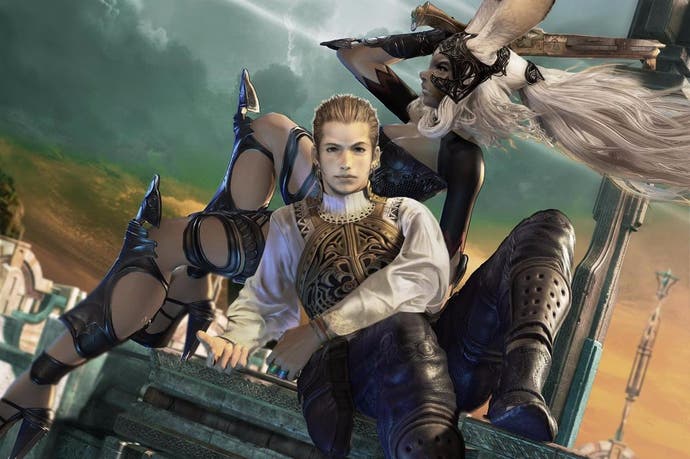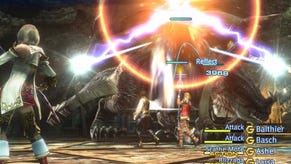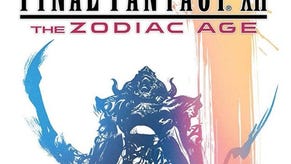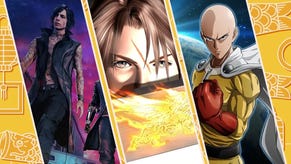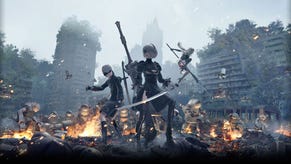Final Fantasy 12's Gambits remain the greatest mechanic in JRPGs
Higher Vaan.
It is, perhaps most famously, the game that plays itself. Final Fantasy 12 was a peculiar entry in Square Enix's banner RPG series in so many ways, but its most fascinating trait also proved to be its most divisive.
It's called the Gambit system, through which you can programme each of your characters, their responses and approaches to each encounter, until the combat is almost entirely automated. Push forward into a mob and let your scripting do the damage; sit back and admire your own ingenuity as it's written across the screen in a flurry of metal and magic.
Optimisation is a part of every RPG, but in Final Fantasy 12 it's pushed to a brilliant new extreme - your party's a machine that must be constantly tinkered with, tweaking one variable here and tightening up another there until you've got an engine that purrs. It is glorious.
No surprise, then, that the gambit system was the foundation of a game that underwent several changes during its six-year development - at a time, it's worth remembering, before the likes of The Last Guardian and Final Fantasy 15 when six years to make a video game was considered a very long time indeed - including a change of director, the mantle moving from Yasumi Matsuno to Hiroshi Minagawa with Hiroyuki Ito providing the bridge between the two.
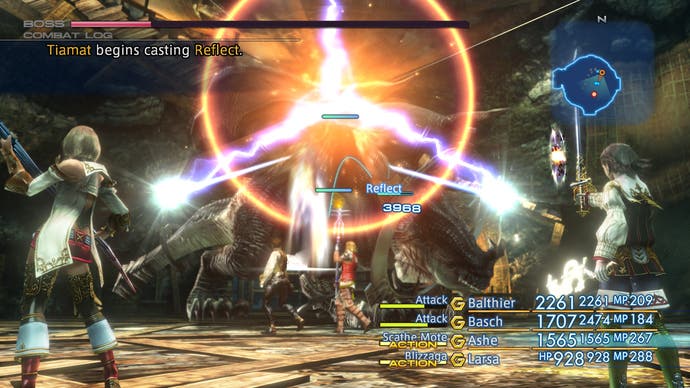
Through all the turmoil, though, the gambit system remained - itself a nod to the then-voguish MMOs, the success of Final Fantasy 11 making Square go gooey-eyed for the rapidly emerging online market. Getting such a system working on a PlayStation 2, however, would prove to be a struggle, as Final Fantasy 12 programmer Takashi Katano recalls today. "I remember the first day working on the project, they handed me the design proposals for the two major features - the seamless combat and the gambit system - and I remember looking through them and thinking 'wow you want me to do this on a PS2?'"
"Because we had those two clear concepts at the start, we carried that through," adds Final Fantasy 12 project manager Hiroaki Kato. "What did change and provided a lot of hassle was the world itself - getting all that into the game to work with the gambit system was a lot more work than we expected. Maybe that's where all that extra [development] time came from."
Both Katano and Kato have been reunited for Final Fantasy 12 Zodiac Age, a revival of the 2006 PlayStation 2 RPG coming out on PlayStation 4 later this summer that's more than a remaster - with the opportunity for western audiences to play the amended International version of the original that never made its way out of Japan after its release in 2007 and a suite of new features, it's a remake where the really interesting stuff is going on under the hood. It's somewhat fitting that a game that's all about tweaking those all-important variables sees its key staff return for one last tinker.
"There'd been a discussion in the company for quite a while about doing something with 12, doing a remake or a remaster," says Kato. "We didn't want to just upgrade the graphics and sound, though, we wanted to rework the gameplay, the mechanics, and make it a better game in that sense as well. And to do that we wanted the original team as well. Getting them all in one place took a while.
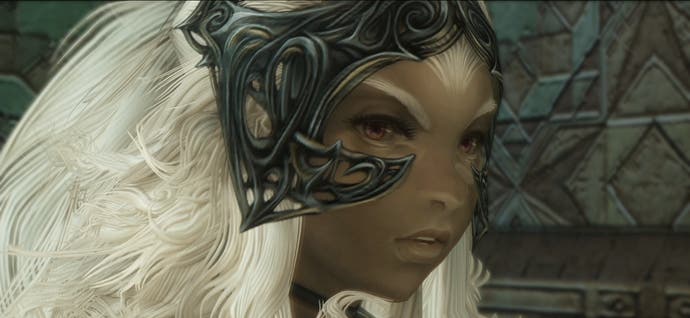
"The version of the game this is based on is Zodiac International, which was only ever released in Japan. For that version of the game, [Hiroyuki] Ito reworked the battle system and the character growth. That's included here, and we added some tweaks to it. He's involved in that consulting role."
Ito was instrumental to Final Fantasy 12's brilliance - as he is to Final Fantasy in general, having previously created Final Fantasy 4's Active Time Battle system and overseen the masterly design of Final Fantasy Tactics - so it's a delight to have his work placed in the limelight once again. There have been some notable tweaks for the new version of Final Fantasy 12, many of which are there to simply improve the quality of life - you can now speed up gameplay to ease some of the grind - while some go a little deeper. "It wasn't so much things we had to change," says Kato. "When we started and played through the original game. It's been out for a long time, so we've received a lot of feedback over the years! We also wanted to look at it as a game now - what would we need to do to make it right?"
Some of those changes may well prove controversial - the difficulty of the main campaign has been eased, though that's offset by an all-new Trial mode - while others may well be more universally approved. It's now possible to employ two jobs at once now, your character traits sprawling out across multiple licence boards. Final Fantasy 12, an RPG that always pushed you to ask 'what if?' when toiling over a character build, has been enriched by even more possibility.
Final Fantasy 12's story came under criticism for being a little undercooked and underplotted, but in the wake of 13's mind-numbing convolutions and the gnawing holes left to be plugged by tie-in tv shows and supplementary DLC in 15, it's a simplicity I pine for. There's a grand operatic sweep to its tale, lifted wholesale from Star Wars perhaps - it's all too easy to draw parallels between Vaan and Luke, Balthier and Han, and to see Fran as a kinky Chewbacca freshly outfitted in a Soho sex shop - but it's entertaining nevertheless.
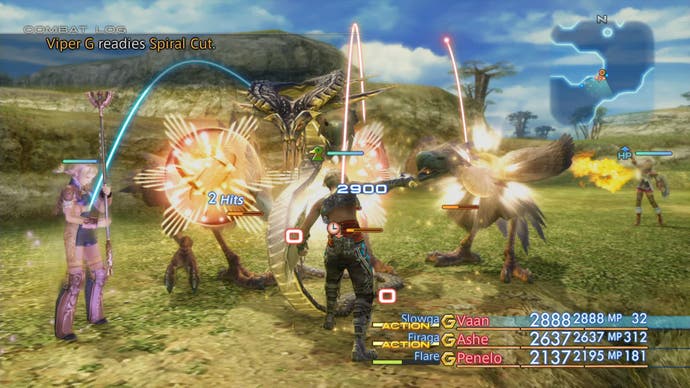
And there's something enchanting about heading back to Ivalice - a backdrop that remains, for me, Final Fantasy's most alluring setting. It's a world of sand, sun and stone, brought to life, of course, by the richer, more opulent tone typical of Yasumi Matsuno's work. It's heartening to see that Matsuno's onboard in some way, making his most direct contribution to the series since his departure partway through the development of Final Fantasy 12. Matsuno doesn't have a direct role in this remake, but is involved in the writing and design of forthcoming Final Fantasy 14 expansion Stormblood's raid Return to Ivalice - and you can't help but hope this summer's unlikely pairing won't be our only chance to head back to those sun-kissed lands.
Kato certainly won't quash such hopes. "To think about where to go in future - there's things like taking the gambit system further, or going back to Ivalice. It depends on the fans - if you want to see more Ivalice stuff, then tell us what you want."
Let's not get ahead of ourselves, though. Before all that there's a chance to see a deceptively simple, wonderfully graceful and uniquely complex machine of an RPG restored, polished and retooled until it shines like the modern classic it most definitely is. If you were one of those who didn't gel with Final Fantasy 12's bold dalliances with series staples at the time, I implore you to give it another look. Give this one another chance to play itself.
